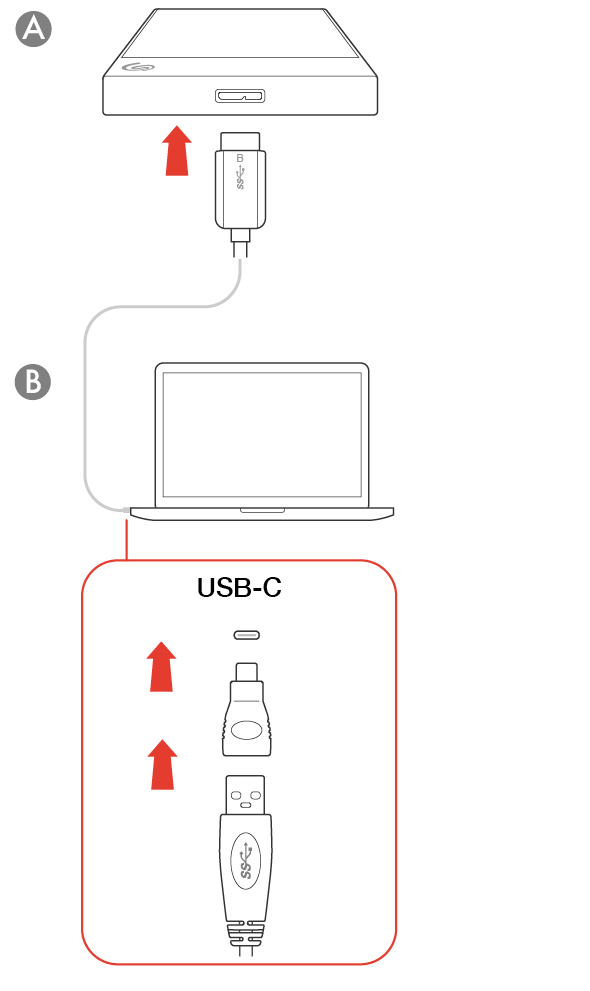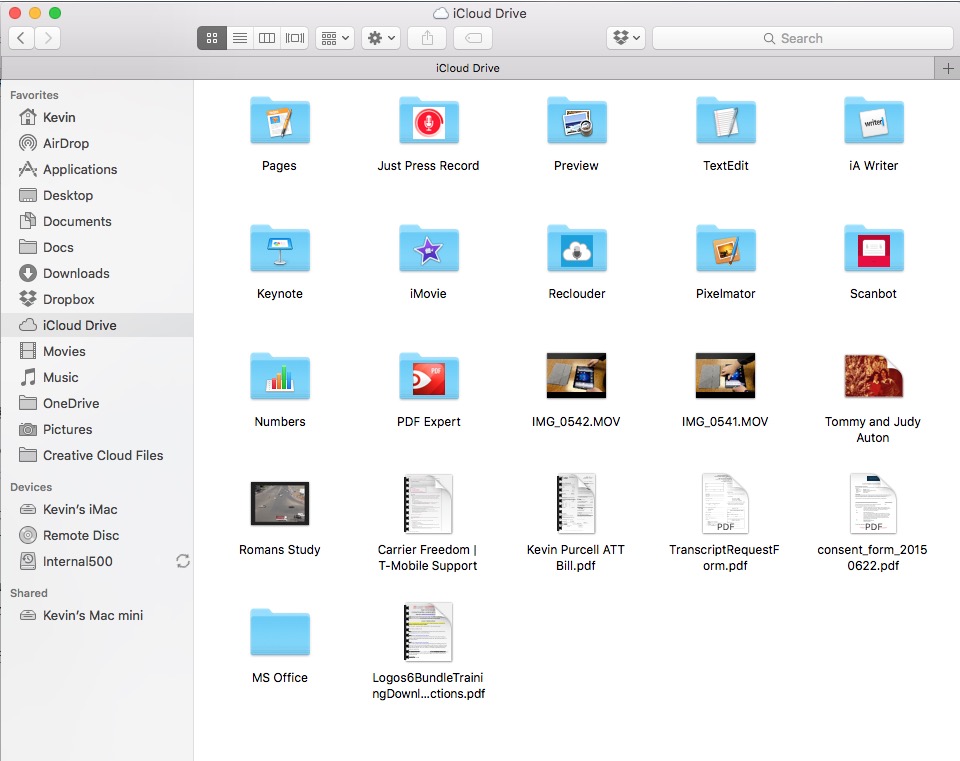Apr 28, 2012 I would like to setup a manual backup of my mac (no time capsule). Which files should I ensure to backup - besides desktop, documents folder, video folder. All my mail is imap-secured. Just wondering, which files on the mac os and so on, I should ensure to backup. Morten PS: On windows, I used a small program called second copy to back up files. Feb 15, 2019 You might want to do so after the original files are deleted from your Mac, or the hard disk (or SSD) in your Mac is erased or replaced, such as during a repair. Restore from a Time Machine backup When you restore from a Time Machine backup, you can choose to restore all your files, or restore both the Mac operating system (macOS) and all your files.
Question:
Jurgen writes: I use CrashPlan to back up specific data for extra 'offsite' protection, but I've been having trouble with Time Machine for my local, full system backup and I'd like to try backing up my entire Mac using CrashPlan's local backup feature. Time Machine automatically handles which folders and data to back up to ensure that my system is protected (when it works, that is), but I'll need to do that manually with CrashPlan.
So, if I want a full system backup with CrashPlan that offers the same level of protection as a local Time Machine backup, which files and folders should I tell CrashPlan to back up?
Answer:
These suggestions apply to virtually any service or software that allows for selective backup.
However, it will allow you to choose which devices are allowed online.For example, if you have kids, you could use MAC address filtering to disallow their laptop or smartphpone from accessing the Wi-FI network if you need to ground them and take away Internet access. Mac address filter setup gt784wn manual. This Is a Network Administration FeatureMAC address filtering, properly used, is more of a network administration feature than a security feature. It won’t protect you against outsiders trying to actively crack your encryption and get onto your network.
Quicken for mac manual. Quicken 2019 for Mac. Quicken 2019 for Mac was released with little fanfare in November 2018. Since I purchased a 20-month subscription to Quicken Premiere last year during an Amazon.com Black Friday sale, updates like the 2019 edition have been provided at no additional charge. I would like to explore the new options, including using web-based, but not before reading some kind of manual that explains Quicken 2017 for the Mac, and how I can replicate the way I use Quicken 2007. I keep looking for one on Amazon, but only Windows manuals are available. For example, here is a review of the latest available manual. Oct 13, 2016 Quicken 2019 for Mac imports data from Quicken for Windows 2010 or newer, Quicken for Mac 2015 or newer, Quicken for Mac 2007, Quicken Essentials for Mac, Banktivity. 30-day money back guarantee: If you’re not satisfied, return this product to Quicken within 30 days of purchase with your dated receipt for a full refund of the purchase price. Dec 21, 2016 Quicken for Mac vs. Quicken for Windows. Be aware Quicken 2019 for Mac does not function exactly the same as its Windows counterpart. In some ways, this is good, because Quicken can take advantage of features available only in Apple’s MacOS operating system. On the other hand, Quicken for Mac operates slightly different than the Windows.
When choosing what to backup manually, first and most importantly look to the Users folder, located by default at Macintosh HD/Users/. This will back up your user account, along with any other accounts on the Mac, plus any shared data. Each user account contains your Desktop files, documents, downloads, videos, music, and pictures. If you have more than one user on your Mac, and you’re only interested in backing up your own data, just go one level deeper and select your user account from within the Users folder.

Another location you may wish to back up is the system level Library folder, located at Macintosh HD/Library/. While all of your personal preferences and application support data should be in your user Library folder, which is backed up in the steps above, some applications, such as Microsoft Office, install various items to the system Library folder. You’d probably be fine with not backing this folder up, but if you’re looking for a complete backup solution that lets you resume work immediately after restoring your data, it’s a good idea to grab this folder as well.

The Applications folder, at Macintosh HD/Applications, is also prime target for backup. The Mac App Store and downloadable software purchases have made it relatively easy to reinstall lost applications after a hard drive crash or data loss, but it’s still a time-consuming process even with a fast network connection. By backing up this folder locally, you can quickly restore all of you existing applications without having to re-download or reinstall them one-by-one.
Note, however, that some applications with strong DRM (digital rights management), may require that you re-enter your product key after restoring them from backup. Examples of such apps include Microsoft Office and Adobe Creative Suite products.
All of the above recommendations assume that you’ve used the default locations for your data. If you’ve instead saved data to random folders outside of your User folder, you’ll need to check to make sure these get backed up as well. If you don’t see any files in Macintosh HD/Users/[user]/Documents/, for example, open your commonly used applications and trace your files back to their actual locations.
What to Exclude
If you want complete backup coverage and you have a large enough storage drive, just back up everything. If you’re backup space is limited, however, consider excluding the following items:
Mac Backup Programs

Best Backup For Macs
Whichever steps, methods, or software you choose, just make sure that you back up your data, preferably using the “3–2–1” strategy: 3 total copies of each important file (the original plus two backups), stored on 2 different types of media (such as hard drives and optical disks), with 1 copy stored offsite (either physically offsite, such as keeping an external hard drive at a friend’s house, or in the cloud).
Brief Overview of Wirecast Pro 8.1.1 for Mac OS X. Wirecast Pro 8.1.1 for Mac is a user friendly application which can be used for capturing the videos and then encoding and broadcasting the video directly from your Mac over a local network or Internet. Jan 06, 2017 How to install Wirecast Pro On Mac You DaVid Kh. Unsubscribe from You DaVid Kh? $2,000 Custom PC vs $4,000 Mac Pro - Duration: 8:50. Snazzy Labs 1,775,030 views. Using Telestream Wirecast version 8 with your DaCast Account. There are two methods to set up Wirecast with your DaCast account. The first method is manual configuration, and the second method is based on the DaCast integration within Wirecast. Manual configuration has the advantage of working with all sorts of different custom RTMP encoders. Wirecast 8 manual mac os. Wirecast enables you display several shots in the Preview and Live windows at the same time by rendering them one on top of another according to Wirecast's Layer system. This is an excellent way to add and remove objects in your broadcast. Wirecast displays five layers in the Main Shot List window. They are numbered 1. Wirecast Pro 12 Crack is so cool live video streaming product.Publish by Telestream. Which offers to produce live or on-demand broadcasts for the web. Wirecast Pro Full Version is an expert live video gushing creation apparatus from Telestream, intended for all needs and all ability levels.